Since the bankruptcy filings last week by Borders Group in the U.S. and REDgroup Retail--owner of Borders, Angus & Robertson and Whitcoulls in Australia and New Zealand, independent bookseller response has often been circumspect, with sympathy for fellow booksellers mixed with concern regarding the general state of the industry, as well as a little soul-searching about their own retail futures:
--- 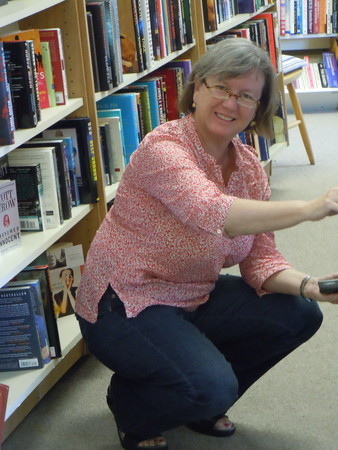 Of the eight Borders within 25 miles of Vallejo, Calif., three will close, the Contra Costa Times reported, noting that the situation with Borders is "not the beginning of the end of books or bookstores as we know them.... It may, however, be a sign of the need to adjust to the times."
Of the eight Borders within 25 miles of Vallejo, Calif., three will close, the Contra Costa Times reported, noting that the situation with Borders is "not the beginning of the end of books or bookstores as we know them.... It may, however, be a sign of the need to adjust to the times."
"I think in this case, it's more about management within that company than about bookstores or big box bookstores in general," said Christine Mayall, owner of Bookshop Benicia, Benecia, Calif. "It's sad, even though they're a big box store and put a lot of independent booksellers out of business. We hate to see any book-selling space lost."
Mayall said her bookstore has survived since 1993 by continually "re-adjusting.... We sell some toys now, and used books. We will be selling e-books on our website and will be offering trades. I don't see books vanishing completely, and that would be terrible in many ways. There's something about the physical presence of a book and of finding a special book randomly at a bookstore. I'm in this business not just because I love reading, but because I love books."
---
Central New York State's only Borders store--in Syracuse--is slated to close, but "smaller, independently owned bookstores are fast-stepping to stay alive," the Post-Standard reported. 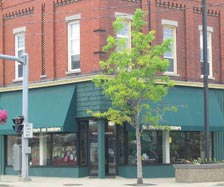 "We're looking on it as kind of the wild west of the publishing era at the moment," said Bill Reilly, owner of the River's End Bookstore, Oswego. "There are a lot of unknowns and there is a lot of change taking place.... "We're embracing the change. We are investing a lot. Last year, we invested in a whole new computer inventory program and hardware. This year, it's the website, so we're not thinking we're going anywhere. It's not clear where it's all going to end up. That's what's giving me a shot in the arm about this business. Let's get on the horse and ride and see where it takes us."
"We're looking on it as kind of the wild west of the publishing era at the moment," said Bill Reilly, owner of the River's End Bookstore, Oswego. "There are a lot of unknowns and there is a lot of change taking place.... "We're embracing the change. We are investing a lot. Last year, we invested in a whole new computer inventory program and hardware. This year, it's the website, so we're not thinking we're going anywhere. It's not clear where it's all going to end up. That's what's giving me a shot in the arm about this business. Let's get on the horse and ride and see where it takes us."
Erika L. Davis, owner of Creekside Books and Coffee, Skaneateles, agreed: "It's definitely a feeling of not being sure right now. I do think there is a place for a long time, hopefully forever, for independent bookstores.... I do think diversifying is a big thing. Our coffee shop, reaching out to the electronic book-reading community, reaching out to regional schools to order books. Those kinds of things, where you reach out to your community and build that side of the business."
---
The Yakima, Wash., Herald-Republic noted that although the Borders bookstore in Union Gap is not on the closure list, "it's clear that Borders' bankruptcy is still on the minds of locally run bookstores."
Jerry Wheeler, who has owned Churchill's Booklovers Haunt for 18 years, said Borders's bankruptcy was a reminder of the effects of the Internet and digital media on businesses like his: "I think it's just going to get worse." Diversifying into antiques, which now account for 30% of his business, has been a key survival strategy. He also cited his inventory of older, hard-to-find books and specializing in local and Northwest history as niche advantages. "I think we can hang in here for a long time. (Our bookstore) is the only place you can get some of the books we sell." Susan Richmond, owner of Inklings Bookshop, said, "Borders's struggles have been no secret for months.... We weathered the opening of Borders, no easy thing for an independent store, and we plan to stay strong while this cloud passes."
Susan Richmond, owner of Inklings Bookshop, said, "Borders's struggles have been no secret for months.... We weathered the opening of Borders, no easy thing for an independent store, and we plan to stay strong while this cloud passes."
---
Indie booksellers in western Massachusetts "remain cautiously upbeat" in the wake of Borders's difficulties and other challenges, according to the Berkshire Eagle.
"I'm not discouraged," said Eric Wilska, owner of the Bookloft, Great Barrington. "Sales are slower than they used to be, but we're more victims of the recession than the Internet." Wilska is encouraged by the fact that people "like to come out of their caves for social intercourse, and bookstores continue to provide that." He added that "the little guys have to be well-managed as the chains struggle more and more. People's expectations are way too high." Overall, however, "I love the challenge. I find it very invigorating," he said.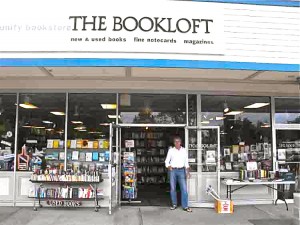
Matt Tannenbaum, owner of the Bookstore, Lenox, echoed that opinion: "I'm upbeat because the scale of my business is still manageable. I'm able to provide nearly the same service as always--knowledge and product. I look at the success of Amazon and e-books; they're like the ringmaster holding the hoop a little higher. People are so juiced up they want to jump that high, and that's changing my customers' expectations."
--- 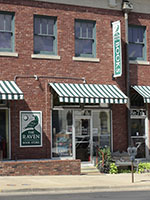 "We have survived through having Borders here and now really regard it as part of our bookstore culture," Heidi Raak, owner of the Raven Book Store, Lawrence, Kan., told Fox-4 News. A downtown Borders store will close. "I think it's healthy competition here in Lawrence.... It's 10% of the market; it's really not good for publishing to have such a big player leave the scene."
"We have survived through having Borders here and now really regard it as part of our bookstore culture," Heidi Raak, owner of the Raven Book Store, Lawrence, Kan., told Fox-4 News. A downtown Borders store will close. "I think it's healthy competition here in Lawrence.... It's 10% of the market; it's really not good for publishing to have such a big player leave the scene."
--- 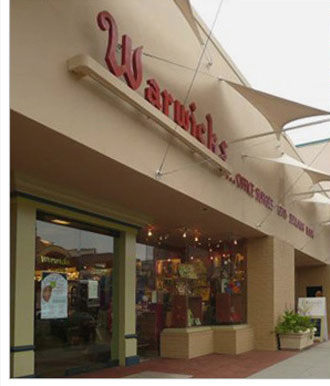 San Diego area booksellers are not celebrating the troubles at Borders. KPBS radio reported that Adrian Newell of Warwick's Books, La Jolla, "was typical in her response to the news when she said the Borders bankruptcy will give her no good cheer and probably no new customers."
San Diego area booksellers are not celebrating the troubles at Borders. KPBS radio reported that Adrian Newell of Warwick's Books, La Jolla, "was typical in her response to the news when she said the Borders bankruptcy will give her no good cheer and probably no new customers."
"It would be nice if they would migrate to all the independent stores in their various communities," she said. "But I have a feeling that a lot of them will go to online purchasing, and I think it just weakens the industry as a whole."
---  On his Fiction & History blog, Steve Yates offered an author's perspective on the impending closure of the Borders in Springfield, Mo. Noting the challenge of being a local bookstore when you "have to carry what a corporate supervisor in Michigan chooses, items that can be sold to everybody," Yates observed that, "in honoring and working with Moon City Press, a small publisher at Missouri State University, and inviting me, one of its authors, in to sign books, that is exactly what Gary [Selby] and the good people who worked at that Borders location aimed to do: Be a better local bookstore by offering something that spoke to Springfield. That is forward thinking; that is to my mind the only way bricks-and-mortar bookstores can get by. They have to offer their local markets special discoveries--items you would never seek on Amazon but now desire having seen them--and local stories. Plus they have to offer their local markets the chance to get a signed book or better yet to interact with the author, local or outworlder. Otherwise why pay the premium, the MSRP for the book? Bookstores are recognizing that challenge right now all over America. Follow my favorite local bookstore, Lemuria, and its blog, and you will see...."
On his Fiction & History blog, Steve Yates offered an author's perspective on the impending closure of the Borders in Springfield, Mo. Noting the challenge of being a local bookstore when you "have to carry what a corporate supervisor in Michigan chooses, items that can be sold to everybody," Yates observed that, "in honoring and working with Moon City Press, a small publisher at Missouri State University, and inviting me, one of its authors, in to sign books, that is exactly what Gary [Selby] and the good people who worked at that Borders location aimed to do: Be a better local bookstore by offering something that spoke to Springfield. That is forward thinking; that is to my mind the only way bricks-and-mortar bookstores can get by. They have to offer their local markets special discoveries--items you would never seek on Amazon but now desire having seen them--and local stories. Plus they have to offer their local markets the chance to get a signed book or better yet to interact with the author, local or outworlder. Otherwise why pay the premium, the MSRP for the book? Bookstores are recognizing that challenge right now all over America. Follow my favorite local bookstore, Lemuria, and its blog, and you will see...."
"So while I am in tumult that good book people are being hurt and losing their livelihoods, I know that the act of sharing and selling an author's work and local flavor goes on. You can walk in Half-Price Books of the Ozarks right now and see exactly what I mean by defined niche and cottage industry and proper scale. For the sake of books, readers, and authors, in the wake of another sad mess, I encourage you to find yourself a local bookstore, and then love it regularly."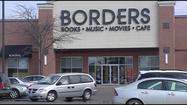 Gary Selby, general manager of the Springfield Borders, responded to the post with a note of thanks that also offered a peek behind the curtain at one of the Borders stores facing closure: "Thank you for the kind words. Yes, it is tough time around here and will be until we close the doors for good. We have a great store here with a great team. We got caught up in something that started years ago with poor decisions made at the top. Too bad we are the ones who pay the ultimate price. The big heads in the big house still have their jobs and livelihood while the rest of us pay for their blunders. Jobs are tough right now and with no help or assistance from Borders we are on our own. This company is a huge disappointment for myself and my team and the many other stores that are closing. We were literally kicked out. I have never heard of a company with so little passion and so much cruelty as this one. I do however cherish the fond memories of the customers, authors, and employees that I have had the pleasure of working with. That is what I take going forward. There will be better days ahead."
Gary Selby, general manager of the Springfield Borders, responded to the post with a note of thanks that also offered a peek behind the curtain at one of the Borders stores facing closure: "Thank you for the kind words. Yes, it is tough time around here and will be until we close the doors for good. We have a great store here with a great team. We got caught up in something that started years ago with poor decisions made at the top. Too bad we are the ones who pay the ultimate price. The big heads in the big house still have their jobs and livelihood while the rest of us pay for their blunders. Jobs are tough right now and with no help or assistance from Borders we are on our own. This company is a huge disappointment for myself and my team and the many other stores that are closing. We were literally kicked out. I have never heard of a company with so little passion and so much cruelty as this one. I do however cherish the fond memories of the customers, authors, and employees that I have had the pleasure of working with. That is what I take going forward. There will be better days ahead."
---
Meanwhile, Down Under, Australian indies have a 20% share of the book market and the Australian noted: "It's the human touch that matters for minnows... [The] human experience is what helps the smaller booksellers survive alongside the big chains." 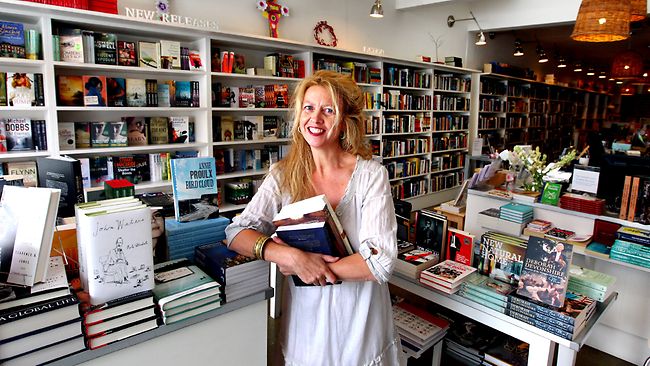
"A true booklover loves having a conversation about books," said Corrie Perkin, owner of My Bookshop, Melbourne. "That may be the conversation they have with the bookseller or with other booklovers in the bookshop. You can't have those conversations with Amazon, you can't have those conversations most of the time in a shop like Borders because they don't have the staff."
Simon Milne, general manager of Leading Edge Books, advised booksellers to ask themselves some serious questions about their own customer service and stock choices following the REDgroup failure: "There's nothing like walking into a bookshop and being surrounded by good books that you can read the back of, open and read one paragraph and know if it's for you."
--- 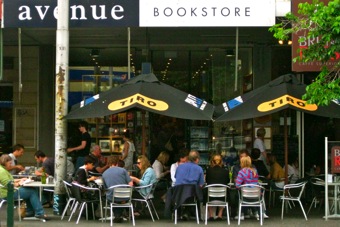 ''What has done them in is an appalling business model,'' Chris Redfern--owner of the Avenue Bookstore, Melbourne--told the Sydney Morning Herald, contending that the first Borders opened in South Yarra's Jam Factory in 1998 with little thought for local market conditions. ''Now the model it has turned to has appalling management, hopeless customer service and a poor range of books. The joke is that they're selling barbecues in Borders.''
''What has done them in is an appalling business model,'' Chris Redfern--owner of the Avenue Bookstore, Melbourne--told the Sydney Morning Herald, contending that the first Borders opened in South Yarra's Jam Factory in 1998 with little thought for local market conditions. ''Now the model it has turned to has appalling management, hopeless customer service and a poor range of books. The joke is that they're selling barbecues in Borders.''
The Herald also observed that "most independent booksellers believe that the way to ensure their future is to be responsive to market demands and to enhance relationships with their customers and the community in which they operate."
---
The Age noted that "niche bookshops remain undaunted by the pressures of modern book selling."
''Retail is difficult now, that's true," said Tim White, co-owner of Books for Cooks, Fitzroy. "'There's no doubt about it. For all sorts of products and industries it's a challenging time, but equally there's room for good retailers who are responding to what their customers want."
Arwen Crawford of Brunswick Street Bookstore, Melbourne, said, "'The industry is definitely changing. You've got to be quite on the ball in terms of adapting and knowing what people want. It's not that people no longer want to read, it's more to do with things like how you select your stock."

